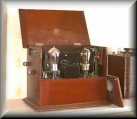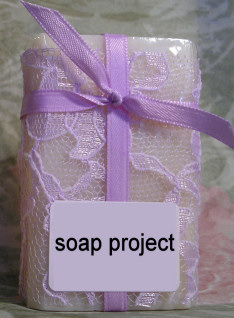|
You have to pay attention to how the listener listens!
Observe your own ear-to-brain mechanism. Apply that knowledge
to your work.
Listening - how people
listen
Just as on stage, as an actor, you can 'cheat' some actions,
so you 'cheat' in radio drama.
For example, if a character were to fall from the top of a
high building, you do not observe the physics of movement.
The emotional feeling of this - that is what you want to put
over. That is going to take more time than the rule of gravity.
You can 'cheat' plot details.
The strict logic of time and place, and a character getting
somewhere, or arriving from somewhere, need not apply.
Fiction gives you a certain amount of freedom, as long as
the listeners do not realise.
Hitchcock, the film director, when receiving complaints about
finnicky details in his thriller plots, dismissed these as 'moronic
logic'.
'I
feel that, with certain stories, logic is dull.'
Emily says:
Although at times I found it perfectly acceptable to come up
with completely incredulous plots or ideas, at other times, I
was overly-concerned with making a scene or sound effect sound
"real" and credible.
With reference to 4.1.1 for example, I really struggled with
the note by Alan Beck to "turn down the music once you've
established it in the scene."
My argument was that, in this case, the music is extra-diagetic
and it is completely unrealistic to simulate a situation where
the music would come down in volume automatically, particularly
since my character says "hey, turn the radio up!" later,
thus acknowledging that the music is coming through a radio that
my characters can control the volume of.
Alan smiled as I tried to make sense of the illogicalities
of the conventions of radio drama.
But I had to pay attention to how our ears operate in the
Lifeworld - and that by the 'cocktail party effect', we tune
out some surrouding sounds, and we select.
Our ears do not operate as a microphone held out to the Lifeworld,
which in discriminately records everything.
In the ear-to-brain mechanism, we balance and select incoming
sound events.
The same type of discussion arose in 4.4.3, when I failed
to accept that the "pouring" in that scene had to stop.
I argued that because my characters are in a factory, the
pouring would not stop, but when I listen back to my first attempts
of post-producing that scene, I can see how the reality of the
situation need not overrule the logic of it.
This occurred again when I was trying to create a credible music
bridge from 4.2.3-4.2.4. I had chopped and changed the script
so much by this point that it did not occur to me that chronologically
scene 4.2.4 came before 4.2.3.
How could we listen to a recorded message in Charity's kitchen,
and then crossfade to the location where the message is being
recorded?
This puzzled me, and I tried a few different ideas out before
approaching Alan only to be told that this is an accepted convention
of radio drama and my listeners would not notice the invalid
passing of time.
When writing the script, on several occasions, I probably over-estimated
my listeners' attention to detail.
I remember taking a really long time to decide at exactly
what time Charity should meet Brenton and Aurora at the bonfire.
Ten to seven? Seven O'clock? When she says "they're late"
(4.4.1) would the listeners know that they were 10 minutes late?
I now see that attention to such minute detail is unnecessary.
For all I know, my listener has popped to the loo at precisely
that time, or gets a telephone call, and misses that particular
detail anyway. In any case they certainly don't take notes between
one episode and the other, and will only concentrate on the larger,
more obvious revelations of plot.
I needed to take a step back occasionally, and be more objective
about the project as a whole. It is important not to forget who
the listeners are, and what matters most to them. |
 Alan Beck
is licensed under a Creative Commons Attribution-Non-Commercial-Share
Alike 2.0 UK: England & Wales License.
Alan Beck
is licensed under a Creative Commons Attribution-Non-Commercial-Share
Alike 2.0 UK: England & Wales License.

